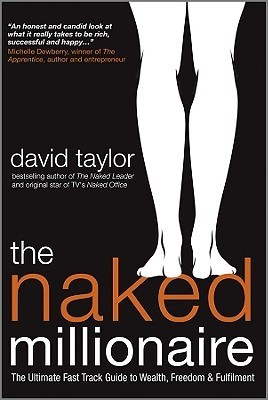
How To Get Rich
Book Description
What if the key to wealth lies not in luck, but in audacious decisions and relentless ambition? In "How To Get Rich," Felix Dennis pulls back the curtain on the raw realities of entrepreneurship, blending gritty anecdotes with unfiltered wisdom. Every page sizzles with the thrill of daring risks and the crushing weight of failure. Discover the distinctions between mere dreams and actionable blueprints for success. This isn't just a guide; it's a manifesto for those ready to challenge the conventional and seize their fortune. Are you prepared to redefine what it truly means to get rich?
Quick Book Summary
"How To Get Rich" by Felix Dennis is not a typical guide to amassing wealth. Instead, Dennis delivers an unapologetic, firsthand account of the sacrifices, mental shifts, and relentless ambition required to accumulate true riches. Drawing from his own experience building a publishing empire, Dennis separates dreamers from doers and lays bare the harsh truths about entrepreneurship—its exhilarating highs and often painful lows. He systematically dismantles popular myths about money, warning against seeking security over self-reliance, and reveals why most people never take the bold actions necessary to get rich. More than financial tips, Dennis offers candor about risk, ownership, and the psychology of success. His book challenges readers to examine their own motivations and embrace a mindset of bold action, showing that building wealth is less about formulas and more about a deep drive to win against the odds.
Summary of Key Ideas
Table of Contents
The brutal realities of getting rich
Felix Dennis shatters the idealized image of entrepreneurship, presenting stark insights into what it truly takes to get rich. He shares that wealth building is not a game for the faint of heart. Few are willing to pay the genuine price, be it time, comfort, or failed ventures. Dennis warns readers that envy, laziness, and procrastination are chief obstacles, and only ruthless self-inventory can reveal if someone is cut out for this path. His message is blunt: being rich is not simply a matter of following step-by-step instructions but of navigating a battlefield of unpredictable emotional and social costs.
Ownership over employment
At the heart of Dennis's philosophy is the primacy of ownership. Instead of working for others, readers are urged to create or own something outright. He holds that the greatest fortunes are amassed by those who control equity, not just those who draw a high salary. This relentless pursuit of ownership means taking on substantial risk—staking one's livelihood and reputation when the outcome is far from certain. Dennis is candid about the isolating and sometimes ruthless decisions that come with seeking financial control, underlining that business is rarely a team sport for those aiming for extreme wealth.
Relentless action and risk-taking
Risk-taking is painted as non-negotiable. Unlike self-help platitudes, Dennis does not sugar-coat the stress and exhaustion that come with entrepreneurial ventures. He advocates for action over planning, stressing that the most significant barrier to wealth is inertia. The successful may not know everything, but they do not wait for perfect knowledge. Dennis recounts vivid examples from his own life, where bold—and sometimes reckless—decisions led to breakthrough opportunities, while excessive caution led nowhere. Readers are exhorted to become comfortable with discomfort, as every rich individual has learned to do.
The psychology of wealth-building
Dennis also delves into the psychological transformations that accompany the pursuit of riches. Money, he asserts, is never an end in itself but a byproduct of compulsive ambition. The wealthy are distinguished not by greed, but by an obsession with the game itself and a willingness to persevere through failure after failure. He encourages readers to examine their motivations, warning that the trappings of wealth—luxury, status, influence—come at the cost of relationships, security, and sometimes happiness. The pursuit is as much internal as it is external, and those unprepared for emotional upheaval should reconsider their ambitions.
Sacrifice and the true cost of success
Ultimately, “How To Get Rich” is a call to honesty—about one's drive, capacities, and willingness to sacrifice. Dennis refuses to romanticize wealth; he exposes its taxing realities and the sacrifices demanded. Success, he insists, is fleeting and cannot replace lost time or meaningful connections. Yet, for those undeterred, his book is both a challenge and an inspiration: riches await only those who dare to seize them—audaciously, relentlessly, and with absolute clarity of purpose.
Download This Summary
Get a free PDF of this summary instantly — no email required.





